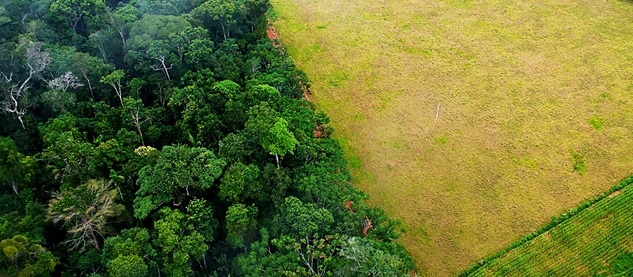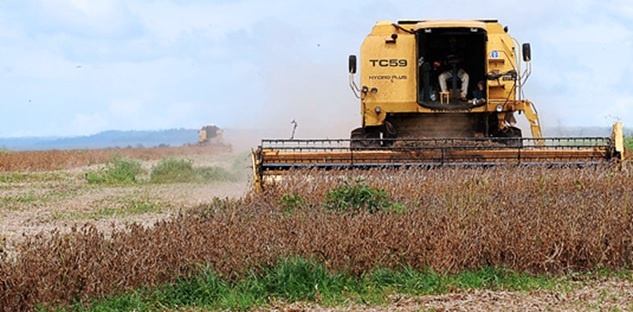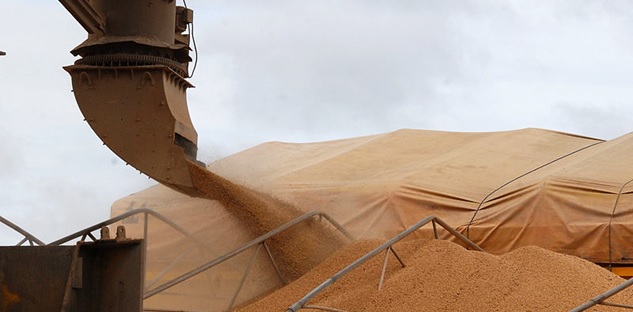We have much more to do and your continued support is needed now more than ever.
The Amazon Soy Moratorium is under threat!

For nearly 8 years, the Soy Moratorium in the Brazilian Amazon has stood as a shining example of how the agriculture industry can voluntarily protect forests in the tropics.
Despite this proven record of success, the Moratorium is on the endangered list. The Brazilian soy industry plans to abandon the current protections that the Moratorium provides at the end of this year, putting Amazon forests at risk once again from soybean expansion.
Many experts predict that if the current protections are eliminated, soy-driven deforestation will shoot up, yet again – nearly 20% of Amazon deforestation was driven by soy before the Moratorium, yet under the current protections, deforestation for soy has fallen to less than 1%.
The end of the Moratorium will undermine years of hard work and dedication to protect forests in the Amazon; and it would have devastating impacts on wildlife habitat, biodiversity and climate change.
National Wildlife Federation is dedicated to protecting tropical forests and wildlife habitat; and we are working to help ensure that the protections, currently in place under the Soy Moratorium are safeguarded and remain in place as long as they are needed.

Background
In 2006, following an influential NGO report and widespread media attention that linked soy production with deforestation and forced labor in the Brazilian Amazon, the Brazilian soy industry implemented an innovative voluntary solution called the Amazon Soy Moratorium; it was a pledge to not trade any soy grown on recently (post-2006) deforested land. The Brazilian government has played an important role in helping to identify new areas of soy arising from deforestation, allowing the industry to avoid buying soy from non-compliant farms. This process has had an important deterrent effect, discouraging farmers from clearing additional land for soy – only a very small proportion of farmers are breaching the terms of the Moratorium.
The soy industry claims that because there is a new Forest Code in Brazil, it is time for the government to be responsible for controlling deforestation. However, the new Forest Code is only in the very early stages of being put into action and it will be many years before it is fully effective. In addition, the law does not prevent all deforestation. Many international companies have zero deforestation policies, so the law alone will not be enough to allow them to responsibly source soy from the Amazon.

Efforts to Safeguard the Moratorium
National Wildlife Federation has been highlighting the negative consequences of prematurely ending the Soy Moratorium and the gaps that exist between what the law is doing versus the effectiveness of the Moratorium. We have asked many global consumer facing brands to weigh in on the importance of the Soy Moratorium, to send a message to soy producers and traders that a large portion of the market wants guarantees that they are not buying soy from recently deforested lands – this cannot be assured under the new Forest Code.
At the recent United Nations Climate Summit, the New York Declaration on Forests was endorsed by a wide range of companies – setting out goals to address deforestation and promote restoration. In addition, Cargill (one of the largest agricultural commodity traders in the world) expanded their deforestation-free commitment to include the entire range of forest risk commodities, including soy. McDonalds also stepped up to demonstrate leadership on these issues by explicitly supporting the Amazon Soy Moratorium.
National Wildlife Federation is working with our partners to call to save the Amazon Soy Moratorium to ensure that soy does not once again become a leading driver of deforestation, habitat destruction and biodiversity loss.






















